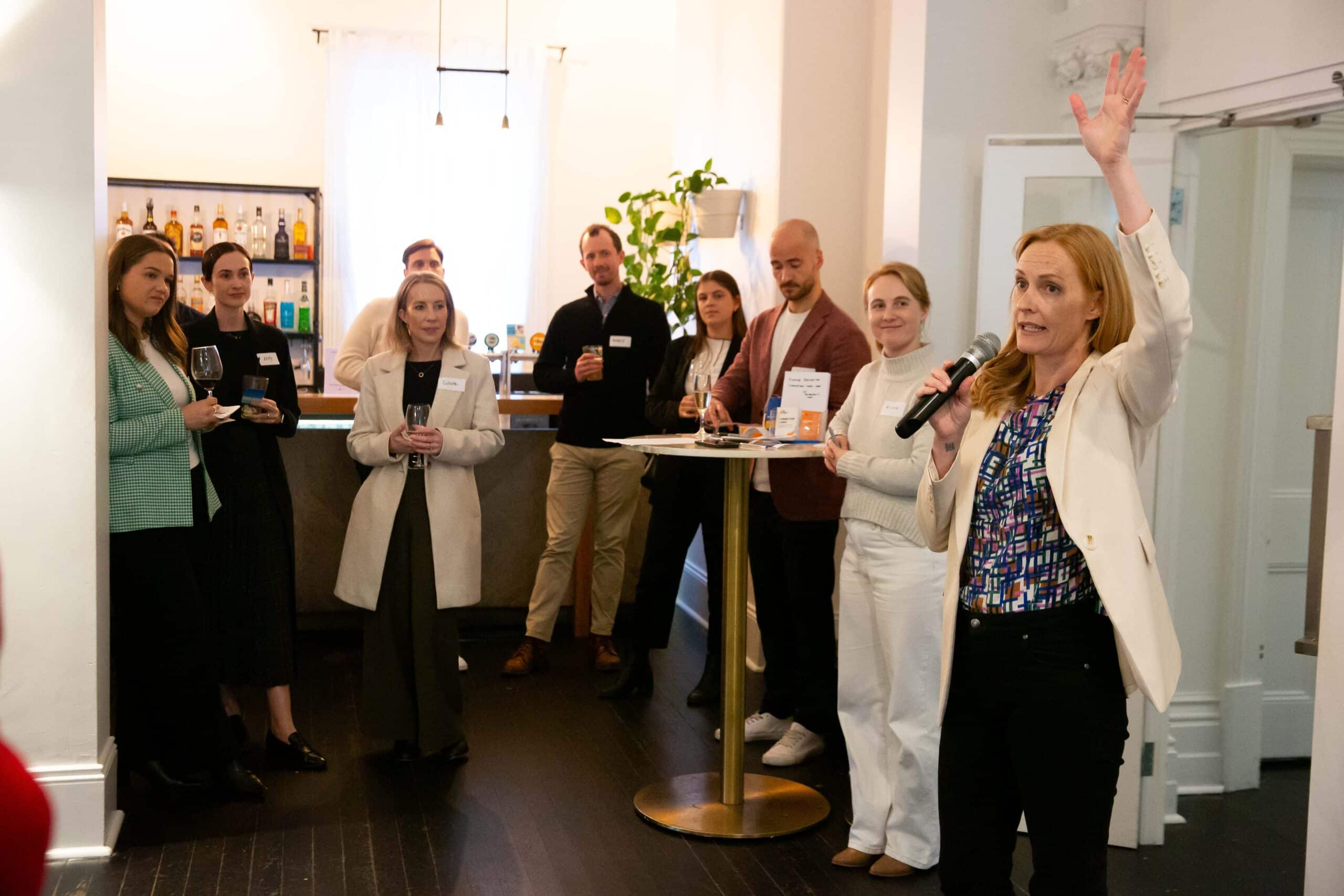One of Netflix’s most watched shows, ever.
From the perspective of a Psychologist.
This is the first in our two-part blog series exploring the themes of the British miniseries Adolescence, written from Be Well Co’s Esme Fabry, a registered psychologist. If you missed part one—A parent’s view on Adolescence—you can catch up here.
Adolescence is a British miniseries that follows 14-year-old Jamie, a seemingly ordinary boy who is arrested for the murder of his classmate, Katie. Famously shot in a single take per episode, the series leaves a lasting impression with its bold exploration of themes such as the radicalisation of young boys online, loneliness, the gender divide, and violence against girls and women. In just three weeks, Adolescence had become of one Netflix’s most watched shows ever.
Through Jamie’s story, the show raises important questions:
- How are boys being shaped by their environments—peers, parents, school systems, and the internet?
- What role do we play as parents, educators, and community members, in supporting boys and intervening early?
Jamie attends school, is a smart kid, has friends, and is raised by well-meaning, imperfect parents. His normality is what makes the story so unsettling. There’s no whodunnit. We know from the first episode that Jamie perpetrated the violence. And we are left wondering how could someone so ordinary and familiar commit such an act?
Viewers look for someone to blame: his parents, his teachers, his school, but the series depicts a more uncomfortable truth: the path from disrespect, to misogyny, to violence is not linear or isolated. It’s a complex and multifaceted, and no one person or situation is at fault.
This blog explores the key themes in Adolescence and reflects on why supporting boys’ mental health and emotional development is a crucial part of preventing violence against women and girls. By creating safe spaces for boys to explore identity, process emotions, and form respectful values, we contribute to a safer, healthier future for everyone.
Adolescent boys are vulnerable: identity development, impulsivity and role models
Teenage boys are at a critical stage of development. Their brains are still maturing, with areas key to survival taking precedent, and the more complex areas responsible for thinking, reasoning, and decision-making (like the prefrontal cortex) not yet fully developed. As a result, adolescents rely more on their amygdala—the emotional and reactive part of the brain. This is why teenagers can be more emotionally reactive than adults.
Boys, in particular, tend to have more active amygdala than girls, which may contribute to a greater need for physical activity and a higher tendency toward risk-taking. At this age, they are especially sensitive to emotional volatility and peer pressure.
At the same time, teenage boys are searching for identity and male role models. In Jamie’s case, he is mocked for being an “incel” (involuntarily celibate) and failing to meet the toxic standards of masculinity enforced by social media and peer culture. He’s shamed, isolated, and consumed by self-doubt. In detention, his emotions are revealed. He’s not a monster, but a child who lacks self-worth, desperate to feel seen and enough, and to belong.
Boys crave guidance, structure, and a sense of aspiration. When positive, present role models are lacking in real life, many turn to the internet—a space often saturated with unfiltered, problematic rhetoric and loud, influential male voices.
In Adolescence, Jamie’s father is constantly working, and the teachers at his school are more punitive than supportive. Without a steady male influence in his life, Jamie turns to online spaces in search of guidance. At this vulnerable stage, boys can be particularly susceptible to radicalisation and harmful ideologies. This is why being present and supporting and guiding boys toward values of empathy, compassion and respect is so critical.
The “manosphere” and online radicalisation
Adolescence explores the insidious effects of the so-called “manosphere”—online spaces like incel forums, MGTOW (Men Going Their Own Way), and pick-up artist communities. These groups often promote sexist, dehumanising beliefs and portray women as inferior.
“Manfluencers” like Andrew Tate have gained massive online followings for promoting hyper-masculinity and misogyny. Beneath the surface, these spaces, are often fuelled by unmet emotional needs—loneliness, rejection, and a need for belonging.
A 2022 study found that boys were “fed” misogynistic content via YouTube. Experimental accounts mimicking young male users quickly received increasingly extreme content through recommended video algorithms. The findings of the study showed that the algorithm displayed increasingly extreme content within a short period, raising alarm bells of how quickly boys can be exposed to problematic content online.
Research by Monash University has highlighted a disturbing recent increase in sexism, sexual harassment, and misogyny in Australian schools. From students at St Kevin’s College in Melbourne chanting sexist slogans, — misogyny and hate toward women affect people across Australia today.
Adolescence illustrates how online culture can distort boys’ beliefs about masculinity, self-worth, and gender roles —and why connection, education, positive role models and prevention are more necessary than ever.
Supporting boys’ mental health and wellbeing
Young boys are doing it tough in today’s world—and they’re vulnerable. All of us have a role to play in supporting them, uplifting them, and educating them. If we’re serious about change, we need to move beyond reactionary measures and punishment, and instead invest in proactive connection, education, and community care.
As Adolescence shows us, even boys who grow up in loving homes, who are receiving an education and have friends, can still struggle—and may seek solace in toxic communities. Exposure to online misogyny and hyper-masculine ideals can happen in any household—even those with stable families, present parents, and good intentions.
This is a shared responsibility. We all have a part to play in helping boys grow into respectful, compassionate people who know how to care for others—and for themselves. Here are some ways we are work toward this.
Build trust and connection
When boys feel disconnected, ashamed, or misunderstood, they may turn to online spaces for answers and community—where toxic ideologies are ever present. At the heart of early intervention is trust. Boys need safe, supportive relationships—at home, at school, and in their communities. Trust is built through presence, consistency, and care. Adults play an important role in modelling respect, emotional expression, and empathy. When boys feel safe, they open up.
Be curious, compassionate, nonjudgemental – and have the conversation
Face to face conversation is more important and powerful than anything found on a screen. When we create spaces where boys feel genuinely seen, heard, and understood—without judgment—we open the door for emotional expression, meaningful connection, and critical thinking.
When we judge, we prevent openness and drive people away. Understanding the roots of a belief opens the door to reflection and offer a safe space to talk. Instead of shutting down harmful ideas with shame and anger, we need to get curious. These ideas haven’t appeared out of nowhere. Underneath toxic messaging often lies hurt, shame and self-doubt. If we approach the young person with presence, kindness and curiosity, we preserve trust and the relationship. Try enquiring:
- “Where is this idea coming from?”
- “Who taught you that?”
By explicitly addressing the influence of online culture and gender-based stereotypes, we can challenge problematic beliefs and help boys think critically about the content they’re absorbing. This builds a foundation of respect and kindness. These conversations allow us to explore emotions, challenge harmful online narratives, answer their questions, and offer alternative perspectives.
Encourage emotional expression
Rather than trying to suppress boys’ energy, we can help them channel it.
Whether it’s football, music, gaming, climbing, social activism or creative expression—healthy outlets are vital. These spaces offer emotional release, a sense of mastery, and often, community. Giving boys a space to use their energy is a far more effective strategy than trying to dampen or repress it, in which case it may come out in unhelpful ways.
Positive role models and connections
Having a positive masculine role model is so important for boys. We need to elevate examples of men who are demonstrate kindness, respect, vulnerability, and authenticity. Boys must see that being a man doesn’t imply dominance or suppression to mean strength—and instead show the strength in vulnerability, and integrity.
It’s also so important that boys are given regular opportunities to listen to, learn from, and connect meaningfully with girls and women These experiences help humanise one another, provide an opportunity to gain an understanding of others’ experiences and challenge harmful stereotypes. These connections also help dismantle the ‘us versus them’ mentality that often fuels misogyny. Being with girls in mixed-gender conversations, classrooms, and collaborative projects fosters mutual respect and relational intelligence—both of which are protective factors against violence.
Digital boundaries and critical thinking
Tech isn’t going anywhere—and shielding young people entirely from it isn’t realistic. Instead of focusing on bans and restrictions, which teens often find ways around, we need to prioritise digital literacy, and critical thinking.
Equipping boys with the language, tools, and confidence to question what they see online is far more effective than trying to censor it. Help them recognise manipulation, understand the motivations behind harmful content, and seek support when something feels wrong.
Limiting devices in bedrooms can be a helpful boundary, but the real safeguard is in shaping expectations and building capacity to resist. Rather than relying on restriction, teach boys how to think critically, stay grounded in their values, and navigate the digital world with awareness and compassion.
Be Well Co’s takeaway
It’s so important we prioritise boys and men’s mental health. We’re not just protecting them, we’re protect everyone. Addressing emotional wellbeing, digital literacy, and gender respect in schools and homes can help prevent violence before it starts. Adolescence raises important issues we face as a community toady. The cost of inaction is high, and the opportunity for prevention, growth and collective safety is all of our responsibility.
Author: Esme Fabry – Knowledge and Translational Specialist at Be Well Co, Registered Psychologist
All images have been sourced from Netflix.
Want to Read More?
 Wellbeing
Wellbeing
Do we need to rethink how we think about mental health?
We often treat mental health and mental illness as opposites. If you are not mentally ill, you must be mentally well. If you are struggling, wellbeing must be low. Research suggests it is not… 03 Mar 2026 3 min read Wellbeing, Workplace
Wellbeing, Workplace
Creating psychologically safe teams
Why Psychological Safety matters and how we build it together Based on Be Well Co’s “Psychological Safety for leaders” workshop Psychological safety has become one of the most important foundations of healthy, high-performing teams…. 18 Nov 2025 Wellbeing, Workplace
Wellbeing, Workplace





